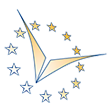Nurses as key drivers of change
The COVID-19 pandemic has highlighted the crucial role of nurses, and the contributions of nurses to achieving positive patient outcomes. But what lies beneath that statement? Nurses and nursing have always made a positive impact on individual healthcare experiences of persons. However, during the Covid-19 pandemic the need for nurses to be responsive and adaptive has been brought into sharp focus. For example, developing new technological solutions to compensate for loss of personal contact, new communication systems to maintain engagement and key relationships, and innovative diagnostic and treatment solutions using tele-health. The pandemic may prove to be a game changer in many ways.
COVID-19 has also highlighted health disparities, within and between societies. Nurses probably encounter these more than any other health professional and we occupy key roles in addressing these, including the use of new and innovative technologies. Experts warn that we must prepare ourselves for future crises. But even without new covid-like crises, the challenges we face are huge. What has the WHO campaign Nursing Now (2018-2020) taught us in maximizing nurses’ contributions to achieving Universal Health Coverage?
Despite the obvious impact of effective nursing, during the pandemic the ‘hero narrative’ has prevailed. All over Europe and throughout the world, millions of nurses are impacting the lives and outcomes of people. We aim to be key drivers of change, to enhance the transitions needed in nursing care, education, and research to future-proof nursing and the health of nurses. Future proofing also means health care with less emissions. If the health sector were a country, it would be the fifth-largest emitter on the planet. As the biggest group of health professionals, nurses should also address this theme.
ENC22 wants to contribute to future proofing of nursing.
We invite fellow nurses, researchers, educators, policymakers, patients, and technicians to join us. Share your stories, pandemic related or not. Present your best practices and research, but also your key learning. We want at times to be disruptive, to force ourselves to challenge, re-establish or re-think our attitudes, habits, and mindset.
Of course, we’ll have exciting world-renowned keynote speakers share their insights. But you’ll also meet persons with health problems, some of whom manage without nurses. What can we learn from them?
A virtual event, combined with local physical hubs
ENC22 welcomes attendees from all over Europe and the rest of world. A variety of attractive work forms will be used, with the latest and most exciting virtual alternatives for physical presentations, informal meetings and networking with fellow attendees and companies. The organizers encourage and facilitate the formation of local, regional, and national hubs, where attendees can follow the virtual events together.
ENC22 focuses on four major transitions:

